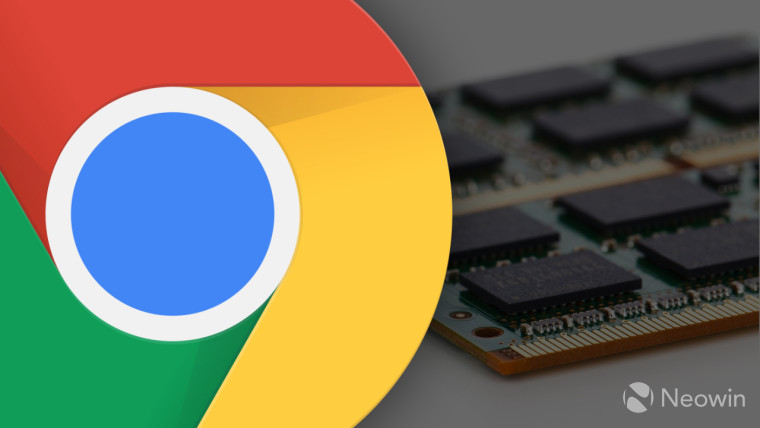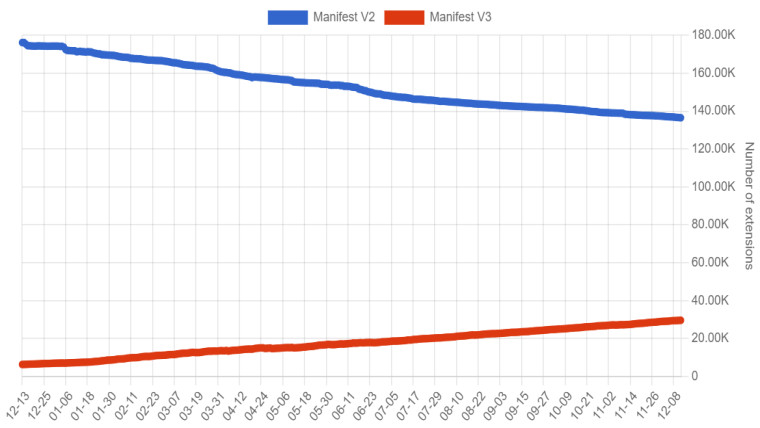
Back in September, we reported that Google will be disabling support for Manifest V2 in Canary, Dev, and Beta builds for Chrome starting January 2023. With less than a month remaining for the change, Google has announced that the transition from Manifest V2 to V3 has been postponed, again.
On Friday, Simeon Vincent, who is in charge of developer relations for Chrome extensions, acknowledged the complaints from developers in a post on the Chromium extensions developer forum.
He posted:
"As we head towards Manifest V3 migration, we are intently monitoring comments from the developer community to help inform our timelines. We’ve heard your feedback on common challenges posed by the migration, specifically the service worker’s inability to use DOM capabilities and the current hard limit on extension service worker lifetimes. We’re mitigating the former with the Offscreen Documents API (added in Chrome 109) and are actively pursuing a solution to the latter."
Vincent added that Google is committed to helping developers overcome challenges with the new Manifest V3 API, and will provide them with new functionality, bug fixes, and enough time to make the transition. As a result, the company has decided to postpone its plan to disable Manifest V2 extensions in pre-release versions of Chrome, which are used by developers, and is also reconsidering its timeline for further changes. He further added that an update on these plans will be provided in March of next year, and the goal will be to give developers enough time to update and test their extensions before disabling Manifest V2.
Google has been updating the way extensions work in Chrome and its open-source Chromium foundation because the old API, called Manifest V2 (MV2), was easily abused and could negatively impact browser performance. The new API, called Manifest V3 (MV3), is supposed to be more secure and perform better, but it does not support certain capabilities that are commonly used by ad blocking, content blocking, and privacy extensions.
Despite objections from the Electronic Frontier Foundation, Google has maintained that MV3 is necessary and that it plans to support common use cases like content blocking with the new API. However, others, including the creator of uBlock Origin Raymond Hill and the CEO of Ghostery Jean-Paul Schmetz, have argued that MV3 is indeed harmful.
Developers of popular content-blocking extensions are working hard to make sure that users will have a similar experience when they switch to Manifest V3. AdGuard had also released its first experimental Manifest V3-based extension, which is significantly limited compared to the current version but shows that content blockers can still function after the switch to Manifest V3.
On the other hand, privacy-focused vendors like Brave and Mozilla plan to keep some of the capabilities that Google is removing or offer alternative options.
According to data from chrome-stats.com, only about 30,000 of the approximately 166,000 extensions in the Chrome Web Store have been converted from Manifest V2 to Manifest V3.
This means that only about 17.84% of all extensions in the store have been migrated. Even many of Google's own extensions have not yet been converted. If Google follows through with its plans to disable Manifest V2, the vast majority of extensions may stop working.

_small.jpg)

















3 Comments - Add comment